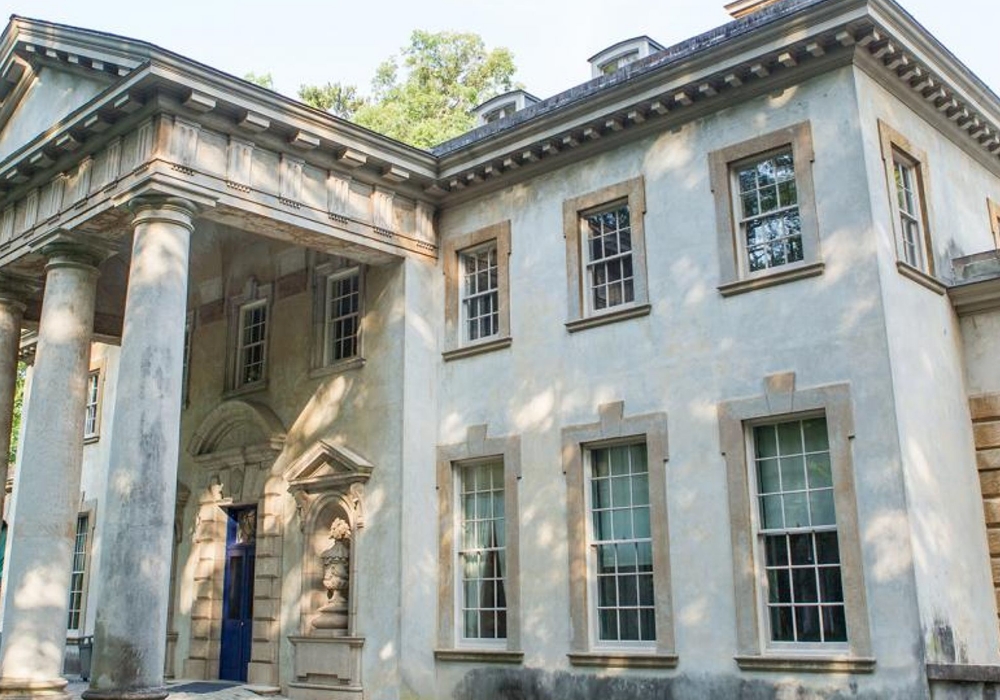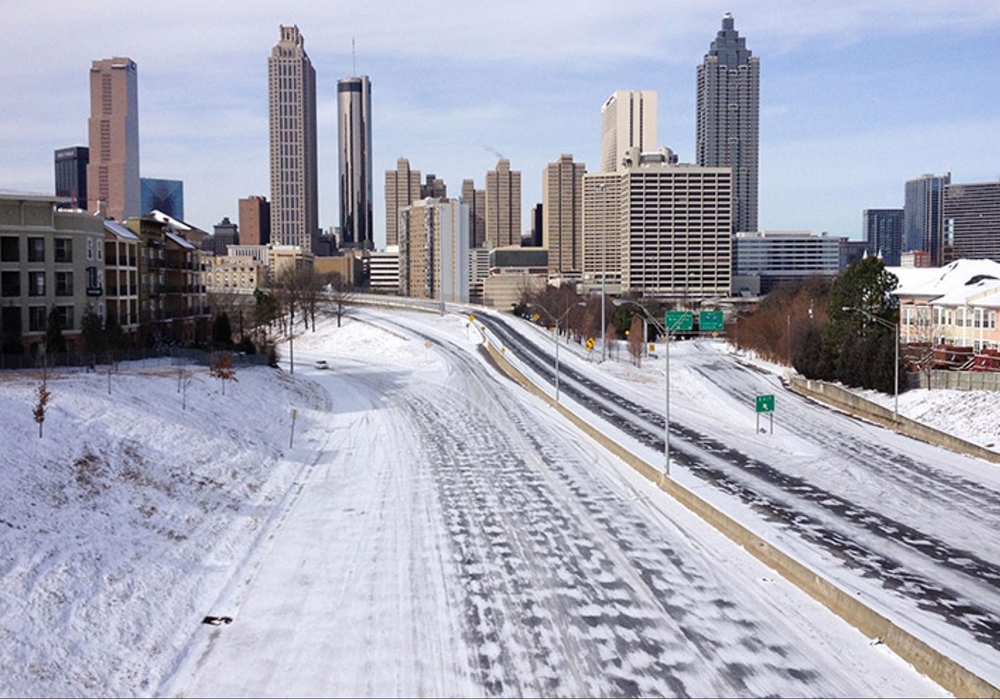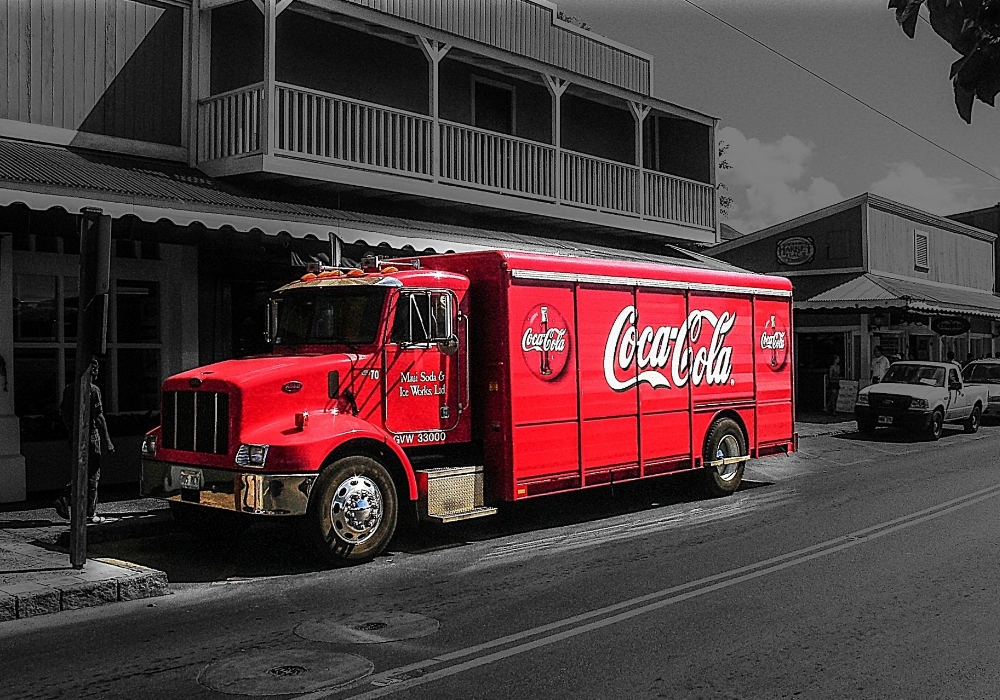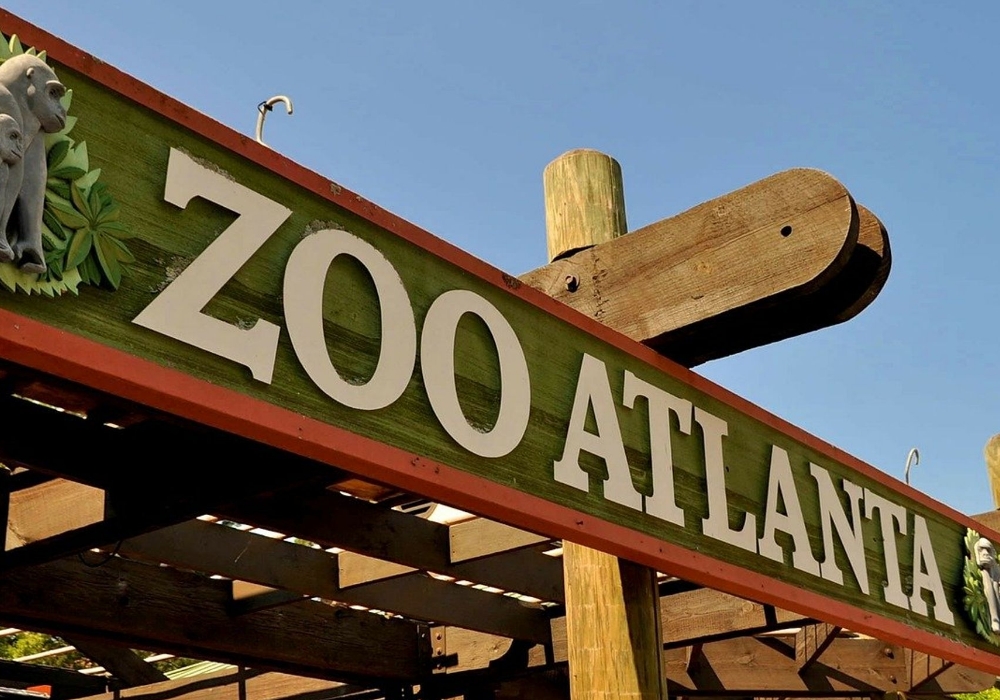Beverly Boy Atlanta Video Production
Looking for video production services in Atlanta? You’ve come to the right place at Beverly Boy Atlanta video production. We’ve been producing quality videos in Atlanta for decades. Using the latest video technology and top industry trends, we deliver a customized and awe-inspiring experience for clients seeking exceptional video content to captivate an audience. We specialize in various forms of video production for commercial, television, film, and corporate video in Atlanta.

[blog-contact email=”email” label=”Get an Atlanta video production quote here!”]
Take a look at some of the recent videos that we have filmed in Atlanta.
History of Atlanta & Atlanta Nicknames

Founded in 1837, Atlanta, Georgia, is one of the fastest-growing cities in the Midwest and a transportation hub of the world. Considered the capital city of the Southeast, Atlanta is culturally rich with a historical past and a futuristic present. The city became the capital of Georgia in 1868, but much of the history dates much earlier as Atlanta development began.
The Creek and Cherokee Nations
Originally known as Creek and Cherokee Native American territory, Atlanta was recruited by the British during the War of 1812 as a means of protection from attack. As conflict between the British and American settlers broadened, the war would become more widely known as the Creek War referencing the area then known as Creek, which is Atlanta today.
In 1823, the Creek area land located in the eastern metro area, known as Decatur today, began welcoming white settlers. Cherokee Nation leaders exchanged their land with the government in 1835 in order to accumulate land further west under the Treaty of New Echota. This action would later be what we now call the Trail of Tears.
The Georgia General Assembly would vote to build the Western and Atlantic Railroad in 1836 as a means of transportation to the Midwest. Cherokees were forced to leave the area between 1838 and 1839 so as to open the area to construction of the railroad. It was at this time that a suggestion was made to call the area Atlantica-Pacifica or Atlanta for short.
The Civil War
Atlanta became incorporated on December 29, 1847. The population would continue to grow in the city, and by 1860 a record of 9,554 people had come to call the metro area home.
Throughout the late 1860s, when the Civil War was taking place, Atlanta became a military hub where supplies were shipped into and out of the area by Rail.
As such, several war battles would take place on the grounds within the city, leading Union General William T. Sherman to order that Atlanta be burned to the ground. Only churches and hospitals were to be spared.
Rebuilding the city would take time and effort that did not come all at once, Gradually Atlanta would be rebuilt, and the population would continue to grow as the city became the fifth city to be considered the state capital in 1868.
The Civil Rights Movement
Sadly, tension around ethnicity and race would also grow with the population, and a race riot in 1906 would kill at least 27 people and injured 70 more.
The Civil Rights Movement would result in several violent outbreaks across Atlanta as Dr. Martin Luther King and students from various historically black colleges and universities in Atlanta would lead several Civil Rights organizations. Two notable organizations made Atlanta their national headquarters at this time, the Southern Christian Leadership Conference and the Student Nonviolent Coordinating Committee.’’
Racial protests took place, but business owners and political leaders aimed to redefine the city as “the city too busy to hate.” Political influence by black Atlanta residents would result in the election of the first African American major in 1973.
Throughout the late twentieth century, African Americans would become a majority in the city. However, demographics have shifted in more recent years as Latinos and Asians, as well as an influx of white residents, now call Atlanta home.
Well-Known Nicknames
Atlanta has several nicknames and is widely known by locals as The A or The ATL. Additional nicknames include A-Town, The Big A, the Big Peach, and Empire City of the South.
With several different nicknames focused on the geography of the city, such as The Watermelon 500 which is used by truckers to describe the Interstate 285 loop that travels around Atlanta and SWATS which stands for Southwest Atlanta Too Strong representing the area central to the city and made popular by OutKast several years ago.
If you intend to visit the ATL for a film production, make sure you’re prepared to reference it as The A, The ATL, or A-Town. Rarely do locals use the full name, Atlanta, in their vocabulary.
Famous Movies Filmed in Atlanta

Several famous movies have been filmed in the ATL over the years. In fact, some consider Atlanta or Georgia in general to be the Hollywood of the South, and for good reason as the bustling city and surrounding suburbs provide a pristine backdrop for a wide range of production genres and styles.
According to details provided in a 2017 study, 15 of the top 100 movies that were shot in 2017 took place in Georgia, many of which have roots in Atlanta. In fact, Georgia seems to be a more popular film location in recent years than California when it comes to big-screen productions.
Some of the movies that were shot in and around Atlanta include:
- The Hunger Games: Catching Fire and Mockingjay Part I: Both films use Atlanta as the backdrop for several scenes, including the Swan House depicted as President Snow’s mansion and Goat Farm Arts Center seen as the District 12 zone in the films.’
- Guardians of the Galaxy Vol. 2: This and various other Marvel Movies were filmed in Atlanta, likely the result of Pinewood Atlanta Studios, the place where most Marvel comic books are transformed into film, calling The ATL home.
- The Internship: focused on an intern that lands a role at Google, this film recreated Google’s Silicon Valley headquarters on Atlanta’s Georgia Tech campus.
- Selma: traveling back in time to Selma, Alabama, and the civil rights movement, this film shot several scenes on the Georgia Tech campus, Marietta Square and the Marietta-Cobb Museum of Art.
- Driving Miss Daisy: depicting the tale of a wealthy Miss Daisy and her chauffeur, the film has scenes throughout Atlanta and features landmarks such as Agnes Scott College and The Temple.
Not just big-screen productions appear to venture into Atlanta to produce. Several television shows are also filmed in Atlanta each year. In fact, between film and television production, Atlanta rakes in millions of dollars each year, a fraction of the whopping $9.5 billion that comes into Georgia from the film industry as a whole.

The following television shows have roots in Atlanta or filmed scenes in the city:
- Stranger Things: Depicting an upside-down universe, Stranger Things films in the former Georgia Mental Health Institute, as well as several other areas in the city.
- The Walking Dead: This television series featured on AMC has filmed in many different locations throughout the city. Just watch the show, and you’re sure to notice major landmarks from the city such as the Jackson Street Bridge and the city’s picturesque skyline.
- Atlanta: The hit television series that focuses on the attempt of two cousins to come out on top in Atlanta’s music industry, this show has produced several scenes around the city in locations such as the Cobb Civic Center, JR Crickets and Carmeli’s Pizza.
On a given day, there is almost certain to be some kind of a film shoot taking place somewhere within this busy city. With so much glory to capture, it’s no wonder filmmakers seek permits to shoot in Atlanta on a regular basis.
Atlanta Film Office, Film Organizations & Local Film Groups
The Office of Film & Entertainment of Atlanta, Georgia, is the official film office for the city. Visitors considering a film shoot anywhere in the city should contact the office for details on permitting and facilities as well as employment facilitation of local talent and training opportunities for aspiring filmmakers and crew.
The Office of Entertainment assists in the permitting for film productions throughout Atlanta and also provides support services to aid with:
- Public property use for film productions.
- Communication between film producers and various city agencies and government officials.
- Communications and minimization of any inconvenience that should arise between the film production crew and local residents or businesses.
- Providing support to filmmakers and offering educational and training programs for those in the entertainment and video production industry.
- Partnerships with other local resources including the Georgia Film, Music & Digital Entertainment Office, which is the leading center for Atlanta film production and entertainment.
If you have questions about film production in Atlanta, need a permit, or are considering a location within the city for a film shoot, contact the Office of Film & Entertainment of Atlanta to learn how to facilitate the production in a smooth and seamless manner.
Several Atlanta film organizations also exist within the city to assist filmmakers and crew with their productions.
Notable organizations include:
- Atlanta Film Society – A community enrichment program that provides screenings, classes, and workshops as well as the annual Atlanta Film Festival.
- Georgia Latino Film Alliance – The Georgia Latino Film Alliance (GALFA) inspires and promotes Latino content creators in the film industry through various programs focused on narrative, documentary, television, and digital video.
- VoiceoverCity, LLC – a media organization that trains voiceover artists in the film industry as well as in Live streaming and other media services in connection with FILM Atlanta.
- Arts ATL – provides artist support and critical analysis throughout the metro Atlanta art scene not only in film and recording but in all other art disciplines.
- ASIFA-South – The Southern chapter of The International Association of Animated Film provides animation artists with workshops, networking events, and festival screenings in Atlanta.
- WIFTA – Women in Film and Television Atlanta is a non-profit organization that helps women working in film and television media to advance their careers and improve working conditions.
In addition to these organizations, various personal and independent film groups can be found throughout the city. Meetups take place around town, offering filmmakers and aspiring crew the change to engage and network with like-minded individuals in the industry.
A quick search for Atlanta Film Groups will provide a list of the latest film coop style groups and meetups where networking can take place.
A major meeting place is the Atlanta Film Festival. The award-qualifying film festival is held annually in Atlanta attracting independent filmmakers, directors, producers, aspiring talent and crew, as well as plenty of movie lovers ready to experience the next best film.
Anyone in the industry that visits Atlanta during the time when the Atlanta Film Festival is actively taking place is encouraged to participate in the 7-day event that is said to be one of the longest-running film festivals in the country.
Atlanta TV/Film Unions and Guilds
Several film unions are found in Atlanta provide filmmaker and crew support through collective bargaining and the protection of rights and property.
Georgia is a right-to-work state, which means it is not legal for an employer and a union to hold contracts that require employees to join the union as a prerequisite to employment.
The contract may also not require an employee to pay any dues to the union. However, you do have the right to join a union if doing so fits within your needs or desires.
The following unions and guilds operate in Atlanta providing resources to film crew and those working in the film industry who become members:
- Local 479: The International Alliance of Theatrical Stage Employees (IATSE 479): provides collective support to those working in motion picture, television, and commercial video production.
- Teamsters Local 728: works with members in the filmmaking industry to provide support through collective bargaining and labor law.
- Local 600 International Cinematographers Guild: provides representation to talented arts professionals, including cinematographers in Atlanta and worldwide.
Before you decide whether you should join a union, consider researching the options and chatting with others in the industry about their experience. This way, you can make the most informed decision as to whether a film union in Atlanta is the best approach for you or if a non-unionized role would be acceptable.
Atlanta Weather & Geography

Early history of Atlanta, which focuses heavily on the use of railroads to bring goods into and out of the South, shows that routes were primarily determined based largely on geography.
The city is situated within the foothills of the Appalachian Mountains, which soar over a thousand feet above sea level. In fact, Atlanta has one of the highest elevations above sea level of any major city lying east of the Mississippi River.
Surrounding Bodies of Water
The city boasts a 132 square mile area on which the Eastern Continental Divide runs dead through. Rainwater from the south and east runs toward the Atlantic Ocean, and rainwater along the north and west of the city pushes out toward the Gulf of Mexico via that Chattahoochee River.
The Chattahoochee River National Recreation Area preserves much of the natural habitat of the river, keeping a natural balance to the otherwise bustling and highly developed area.
Climates
A subtropical climate makes Atlanta mostly hot, humid, and sticky throughout the summer months. However, winters can be mild or actually downright cold in the city when overnight freezing temperatures can be expected for an average of 40 days per year.
The coolest months tend to have temperatures that dip below freezing overnight but tend to rise quickly above the freeze point the following day. Snowfall occurs in the city, albeit just a few inches per season.
An occasional snowstorm or blizzard has been known to occur in Atlanta, the most recent of which happened in March of 1993. Slightly more likely is an Ice Storm, which can cause significantly more trouble than snow. The most recent ice storm in Atlanta was recorded in January 2011.
Rarely does Atlanta enjoy the snow for Christmas. However, in 2010, snow was recorded on Christmas Day in the city. This was the first white Christmas seen by residents and visitors since 1982 and 1983, respectively.
Hurricane Season
Hurricanes and tropical storms are a more likely weather pattern in the subtropical climate. The inner-city location makes Atlanta generally protected from the most devastating storms that rip up the coast of the Atlantic or through the Gulf of Mexico.
Flooding is the most significant weather problem to come to the metro area when these types of storms arise.
Filming in Atlanta is generally most productive and generally acceptable outdoors during October and November when rain chances are low, most Hurricanes have passed, and the heat is beginning to balance out.
You might even need a light jacket if you’re filming at night during these months as temperatures can dip to the low 40s and 50s overnight.
Average Temps
Temperatures in Atlanta are very much affected by the geography of the city. East and northeast winds often blow into the city through winter and early spring resulting in quick and dramatic drops in temperature as well as the presence of several low hanging clouds and a chance for fog.
The area is mostly protected by surrounding mountainous land resulting in a very low risk for severe thunderstorms and tornadoes. In fact, the cool breeze actually fights off these types of storms most of the time.
Filmmakers flock to Atlanta to get footage of the vibrant city life and the pristine mountains which surround the city center. Clear calm nights when humidity is low attract filmmakers seeking to capture evening shoots with ease.
Several high-rise buildings that light up the city at night can easily be captured when weather patterns reduce cloud cover and low lying fog from the area.
Atlanta Economy, Demographics & Atlanta Transportation

The economy in Atlanta is one of the largest in the country, 10th largest to be exact and the 18th largest in the world. What makes Atlanta tick?
Several major national and international corporations call the ATL home including:
- Coca-Cola
- Home Depot
- UPS
- Delta Air Lines
- AT&T Mobility
- Newell Rubbermaid
Several other companies operate within the metro area and surrounding towns. Arby’s, Chick-fil-A, Equifax, First Data, Georgia-Pacific, RaceTrac Petroleum, and Waffle House are all headquartered in the city. Additionally, over 75% of all Fortune 1000 companies have presence in the city.
It’s relatively safe to say that dominant sectors of Trade, transportation and utilities, Professional & Business Services, and Government as well as Education and Health Services contribute largely to the Atlanta economy as do several other sectors such as Leisure and hospitality, manufacturing and financial activities.
General Population
Residents of Atlanta are of mixed descent. Of the nearly 500K residents in Atlanta, it is estimated that nearly half or slightly over half are African American. Many are gay, lesbian, or bisexual. In fact, an estimated 4.2% of Atlanta’s population is part of the LGBT community. The 19th largest major metropolitan area of LGBT residents in the country.
60% of the city consists of predominantly black neighborhoods. However, Buckhead and Northeast Atlanta are predominantly white. The fastest-growing areas of the city include Downtown, Midtown, West Midtown, and Eastside neighborhoods.
While an estimated 53% of Atlanta residents were born in Georgia, a boom in out-of-state residents has been seen somewhat recently.
During the day, when businesses are in full operation, the city sees over 250K people commute in for work on a given day. Thus, daytime population rises to approximately 676K people, a 62% increase in people over the total residency.
Transportation
With so many people coming into the city for work, film production can be challenging at best as getting around town, if you’re not familiar with Atlanta transportation, can be a nightmare.
Transportation in Atlanta is provided through a complex infrastructure that features several working systems, including heavy rail, bus transit, licensed taxis, freeways, the world’s busiest airport, and nearly 50 miles of dedicated bike paths throughout the city.
Traveling into the city by air is the chosen method of transportation for many filmmakers. The Atlanta International Airport sees 300K passengers through each day. The best way to get around town is MARTA.
MARTA
MARTA operates a mix of buses and rail lines that travel throughout the city as well as into nearby suburban towns. Riders pay just $2.50 to travel via the Red or Gold train from the airport, which is about 10 miles east of downtown to various other attractions within the city.
Traveling in a futuristic manner, the Atlanta Streetcar provides ease of access to get to areas that are not within walking distance, but the streetcar only stops in select areas of Downtown and East Side attractions, so don’t get stuck traveling further than you intended.
We know it’s common to have a ton of equipment when shooting on location, and that can make public transport tough. If driving is an absolute must, make sure you’re prepared with plenty of extra time, your GPS, and a snack (Atlanta traffic can be a nightmare, and you may be sitting for a while!).
The fastest transportation around Atlanta is the MARTA-Rail, but it’s not always the most efficient. Trains run as early as 4:45 a.m. and as late as midnight. Just don’t miss the last train are else you’ll find yourself paying a fortune for late-night rideshare. Several rental car kiosks are found at the Airport to assist you when you arrive.
Taxis and Ride-Share
Additionally, taxis and various ride-share apps can be used to travel around the city. Expect rates to be rather high as much of the travel time will be spent sitting in traffic as you make your way, albeit slowly, through the city.
Traveling to several local attractions by foot is a welcomed experience as long as you’re not walking around town in the dead heat of summer when temperatures can exceed 90 degrees.
The World of Coca-Cola, the Georgia Aquarium, and the Center for Civil and Human Rights are within walking distance of each other. For attractions that are slightly further away, loaner bikes can be rented around the city at a rate of $3.50 for 30 minutes. Simply grab a bike, head across town and drop it off at a nearby drop location.
For help getting around Atlanta, download a GPS app on your phone and prepare in advance for your trip. Contact the local transportation authority to learn about the various options available to you and to make the most out of your visit.
Atlanta Recreational Activities

Several recreational activities throughout Atlanta keep residents and visitors busy throughout the year. Depending on how you intend to unwind after a long day of filming, you’re sure to find something attractive to do in Atlanta.
Various outdoor activities involve watersports to stay cool during the humid summer months. Into winter, several indoor activities, including arcades and sports venues, will provide an escape from the chill.
The Georgia Marine Aquarium attracts visitors from all over the world to a vast aquatic center complete with over 120K animals on site. The Zoo at Atlanta is another popular place for tourists where more than 1,000 animals can be seen from around the world.
Walk Through History
Historic sights include the Atlanta Center for Civil and Human Rights, which takes you back in time on an interactive trip to the Civil Rights era. To view Georgia’s oldest house, the Wrens Nest, consider a guided tour that takes you into the home where Chandler Harris and family lived in the early 19th century.
Filmmakers may enjoy a trip to the CNN studio in Atlanta. Visitors can spend about an hour checking out the studio where several CNN films are produced live on a regular basis.
From there, check out the World of Coca-Cola, where hundreds of different flavors of Coke can be sampled from all around the world.
Browse Major Attractions
Atlanta Legoland is sure to provide hours of fun for youth and adults interested in roller coasters and rides. In fact, if roller coasters are your thing, consider nearby Six Flags in Cobb County just west of Atlanta, where several major attractions and dozens of thrill rides will surely excite.
If drinks and dancing are your idea of a good time, Atlanta is sure to please. Several forms of music originate in Atlanta, therefore spending a night on the town and enjoying live local entertainment is almost certain to be a great experience.
Some of the hottest nightclubs in the South are found in the city, including the Gold Room Nightclub, the Havana Club, and the Sanctuary. Visit the CosmoLava Lounge for a tropical setting, dance club vibe, and plush velvet seating for guests. You won’t be disappointed!
Always Something to Do
Whether you’re visiting Atlanta for a few short days or you’ll be in town for several weeks, there is so much to see and do around the city you’re sure to have a blast. Ask any locals what their favorite attractions are, and you’ll most likely get differing answers from each simply because Atlanta is such a vibrant city with so much excitement to be had.

